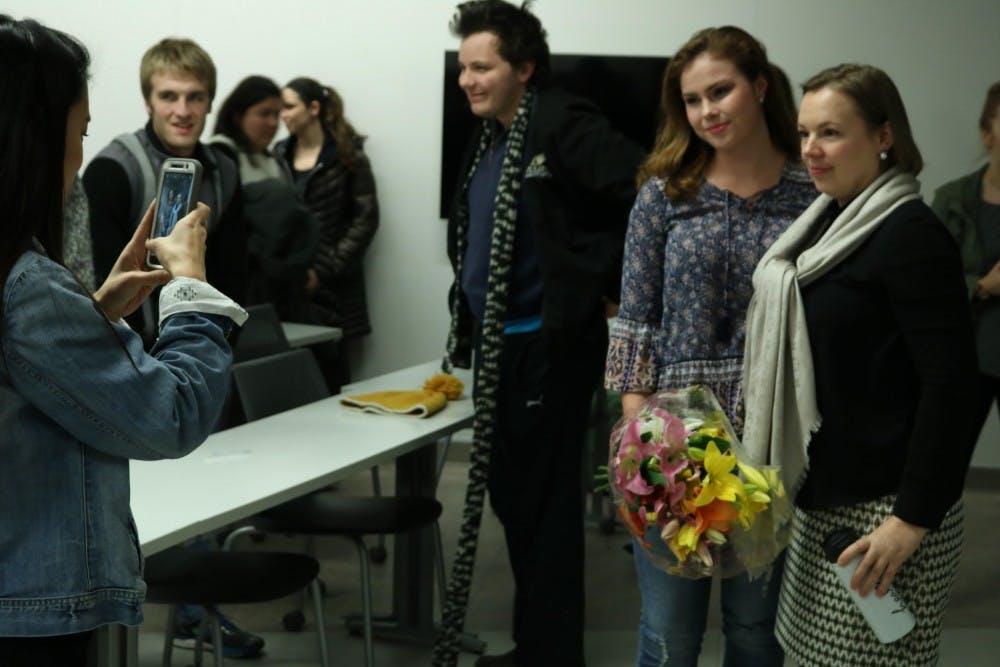Graduate student Ko Dokmai doesn’t want to perpetuate the one-sided narrative portraying the United States as a savior when he completes his degree and returns home to Thailand.
“The more I read about U.S. politics, the more I read about U.S. colonialism, I started seeing more that it's not a one-sided issue,” Dokmai said.
As part of his quest to better understand western imperialism, Dokmai attended the Comparative Refugee Studies Panel on Monday in the Global and International Studies Building.
Three student organizations collaborated for a discussion to help others better understand what a refugee crisis looks like in different areas of the world and offer ideas on durable solutions. Each student group chose one panelist to represent a distinct geographic region.
No Lost Generation at IU chose masters student Nick Greven to speak about Latin American migrants. Liberty in North Korea at IU selected Ria Chae, a postdoctoral fellow with the Institute for Korean Studies, to share insight on North Korean defectors.
Students for Peace in the Middle East chose Abdulkader Sinno, an associate professor of political science and Middle Eastern studies, though Sinno was unable to participate in the discussion due to illness.
More than 60 people attended the panel, which involved speeches from the panelists, followed by questions from clubs’ student leaders and audience members.
“Oftentimes, we only focus on one region in the world,” said Emily Gibson, head of operations for Liberty in North Korea. “Refugee issues are borderless issues.”
Gibson and several students attending the event noted recent media coverage of refugee crises has been dominated by the Middle East, especially Syria. Junior Leah Grynheim said this realization motivated her to attend the panel to learn about refugee crises in other areas of the world.
“Often enough, people associate refugees with the Middle East,” Gibson said. “But it's a global issue.”
In his speech on deportation and immigration issues in Mexico, Greven said Mexico’s asylum agency and organizations are intentionally delaying Central American asylum seekers.
Greven said Mexico’s passage of the Southern Border Plan in 2014 has significantly increased the amount of detentions and deportations there.
For junior Daniel Park, on the other hand, his Korean heritage drove him to attend the panel to learn about refugee crises in the Middle East. He has attended several panels at IU to become more informed about refugee issues.
“We as a Korean race have been split into two, and that is just really tragic,” Park said. “As a student, the best way to solve that issue is to raise awareness.”
During the panel, Chae suggested grassroots organizations, including the student groups leading the event, could elevate their work by taking concrete measures to help the resettlement of North Koreans in South Korea.
Many North Korean defectors create video blogs, Chae said, and students could offer to teach English or other skills to the defectors to assist in their integration.
“Even being far away from North Korea, you can still help them,” Chae said.
Media outlets, including video bloggers, can serve as a means for South Koreans to view North Korean defectors as people, rather than thieves stealing natives’ opportunities.
“Refugees everywhere: they just want a home,” Park said.




